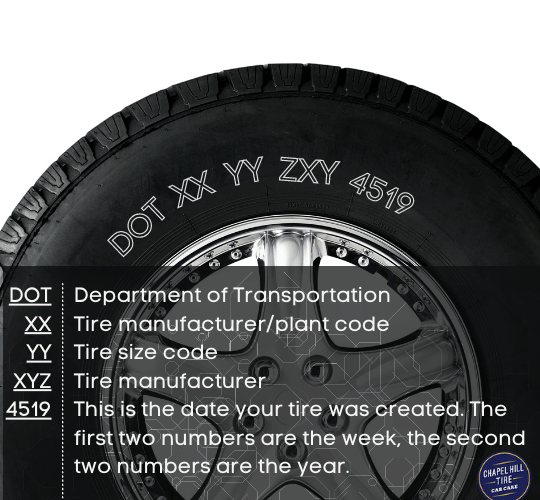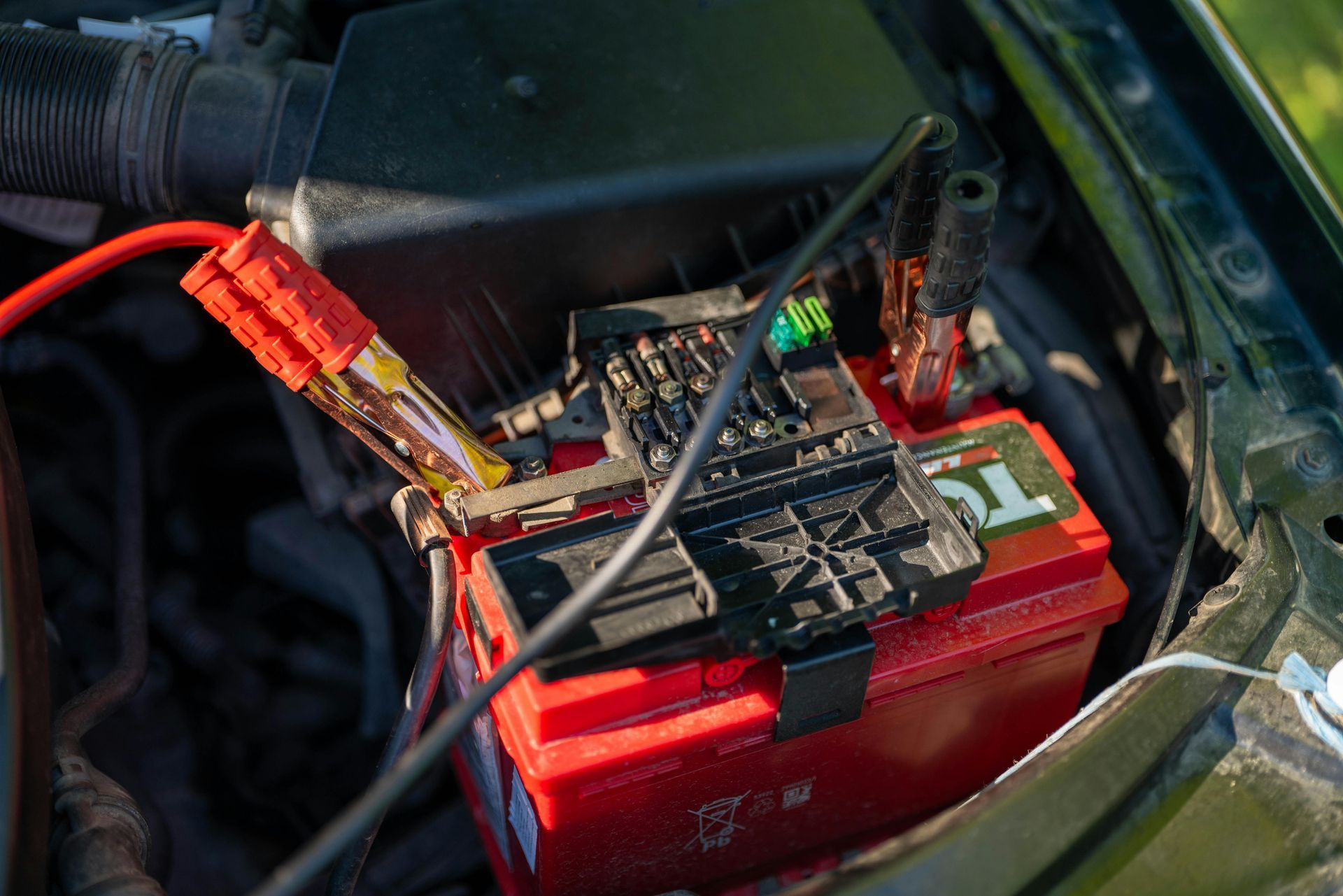Everything You Need to Know About Tire Age
Auto Shops Located in: Chapel Hill, Durham, Taleigh, Apex, and Cary North Carolina

In a year full of news, you may have missed a groundbreaking tire announcement from across the pond this summer: driving with aged tires is now a criminal offense in the UK. They introduced this legislation in July, banning all tires aged 10+ years. This change came after years of campaigning led by Frances Molloy, a mother who lost her son in an accident caused by an aged tire.
Efforts to establish US tire age laws and regulations are ongoing, but there is no telling when (or if) these laws will be instituted. Instead, local tire safety regulations are based primarily on tire tread. However, old tires can cause severe safety risks, even when they have thick tread. Here is a closer look at tire age and how you can stay safe on the road.
How Old Are My Tires? A Guide to Finding your Tire Age
Tires are marked with a Tire Identification Number (TIN), which tracks the manufacturing information—including the exact week of the year it was made. This information is printed directly on the side of each tire. To find it, carefully examine your tire sidewall. You may need to use a flashlight, as these numbers can blend in with the rubber. Once you find your TIN, it may seem like a complicated series of numbers and letters, but it is actually easy to break down:
- DOT: Every tire code begins with DOT for the Department of Transportation.
- Tire plant code: Next, you will see a letter and a number. This is an identification code for the plant your tire was manufactured at.
- Tire Size: Another number and letter will signify your tire size.
- Manufacturer: The following two or three letters make up your tire manufacturer code.
- Tire age: At the end of your TIN, you will see a series of four numbers. This is your tire age. The first two numbers represent the week of the year, and the second two numbers represent the manufacturing year.
For example, if your TIN ends with 4918, this means that your tires were manufactured in December of 2018, and are currently two years old.

What is the Problem with Old Tires?
Aged tires can often look and feel brand new, so what makes them unsafe? It is a change in their chemical composition during a process called thermo-oxidative degradation. Over time, oxygen naturally reacts with rubber, causing it to stiffen, dry out, and crack. When the rubber inside of your tires is dry and stiff, it can detach from the steel belts in your tire’s foundation. This can cause tire blowout, tread belt separation, and other significant safety hazards.
Tire separation is often not easily visible, so many drivers do not know they have aged tire problems until they lose control of their vehicle. Driving on aged tires can also cause sidewall deformation, tread chunking (when large pieces of the tread detach), and tread blistering.
Beyond just the age of the rubber, thermo-oxidative degradation is accelerated by heat. States that experience higher levels of heat also tend to see higher levels of tire aging. Because fast-paced driving also generates heat, frequent high driving speeds can accelerate the tire aging process as well.
A 2008 National Highway Traffic Safety Administration (NHTSA) Consumer Advisory reported hundreds of vehicle fatalities and injuries caused by tread separation of tires 5+ years old. Other NHTSA research and data suggest these numbers soar to the thousands each year.
At What Age Should Tires Be Replaced?
With the exception of extraneous circumstances, tires are proven to be safe from oxidation for the first 5 years after their production. This is why many vehicle manufacturers, such as Ford and Nissan, recommend tires be changed 6 years after their manufacturer date—regardless of your tire tread depth. However, as seen in the NHTSA research above, 5-year-old tires can also cause accidents. Changing your tires every 5 years provides the most comprehensive standards in safety.
Buying from a Reliable Tire Shop | Chapel Hill Tire
Tire age is another reason why it is essential to buy from a reliable tire shop. Used tire distributors, for example, may buy older tires for cheap prices, allowing them to make a higher profit. Even if the “new” tire has never been driven, the aged rubber presents severe safety risks.
When you are due for a new set of tires, visit the experts at Chapel Hill Tire. Our trusted experts provide comprehensive tire and mechanical services, offering a customer-focused buying experience. We also offer a Price Beat Guarantee, which helps you get the lowest possible price on your new tires. Make an appointment at one of our 9 Triangle-area locations, or buy your tires online using our Tire Finder tool today!















